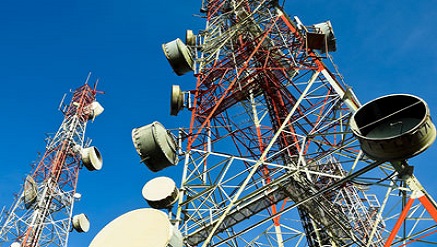Agusto & Co expects Nigeria’s telecommunications industry revenue to maintain an upward trajectory in 2020 increasing by at least 15 per cent to around N2.9 trillion.
This is coming on the back of the exponential voice and data traffic witnessed in April 2020 during the five-week long restrictions on movement to curb the spread of the pandemic.
Agusto & Co, in its 2020 telecommunications industry report released yesterday, said, the entire telecoms market in Nigeria was estimated at N2.5 trillion in 2019 with MTN accounting for nearly half of the industry’s revenue in the same period.
Coming out of the pandemic, millions of users in Nigeria are more connected, better educated and familiar with digital tools. In the same vein, network operators have gained first-hand experience in dynamic network traffic management, while businesses and their telco partners have a better understanding of the challenges of homeworking.
While the advent of the COVID-19 has somewhat fast-tracked Nigeria’s digitisation, particularly at the user experience level, the operational issues that have held back the country’s broadband penetration persist.
Despite the challenges of the industry, the rating agency expects the country’s telecommunications sector to reach this landmark and that, if achieved, the pandemic will have been a blessing in disguise to the sector.
Earlier, the data from the Nigerian Communications Commission (NCC), said, the number of active mobile-broadband subscribers rose sharply by 17 per cent year-on-year to 143.3 million as at 30 June 2020, to become the fastest growing segment of the Nigeria telecommunications industry.
MTN, with over 60 million subscribers or 42.3 per cent share of the total subscription leads the mobile broadband market, while Glo and Airtel with 26.5 per cent and 26.2 per cent shares respectively occupy the second and third positions. 9mobile is the smallest of the four operators with 4.9 per cent of the GSM internet subscriber base.
Operators are grappling with the stifling effect of high business costs occasioned by ballooning interest expense on borrowings and a burdensome tax regime, while the long delays in processing right of way permits and their arbitrary costing models are the main reasons for the prohibitive cost of leasing transmission infrastructure in the country.
This is in addition to the incessant cost of repairing damaged fibre infrastructure as a result of cable theft or damage during road construction, and insufficient electricity supply requiring operators to invest heavily in alternative energy projects to power base transceiver stations (BTS).
Furthermore, the network congestion witnessed during the Covid-19 lockdown owing to the spike in data traffic brought to the fore the inadequacies in the country’s communications infrastructures.
While discussions around additional spectrum for network operators and the declaration of communications infrastructure as critical national assets continue to dominate debate within the industry, Agusto & Co. believes addressing some of these operational challenges will improve the accessibility and affordability of telecom services in Nigeria and ensure sustainable growth for key players.


